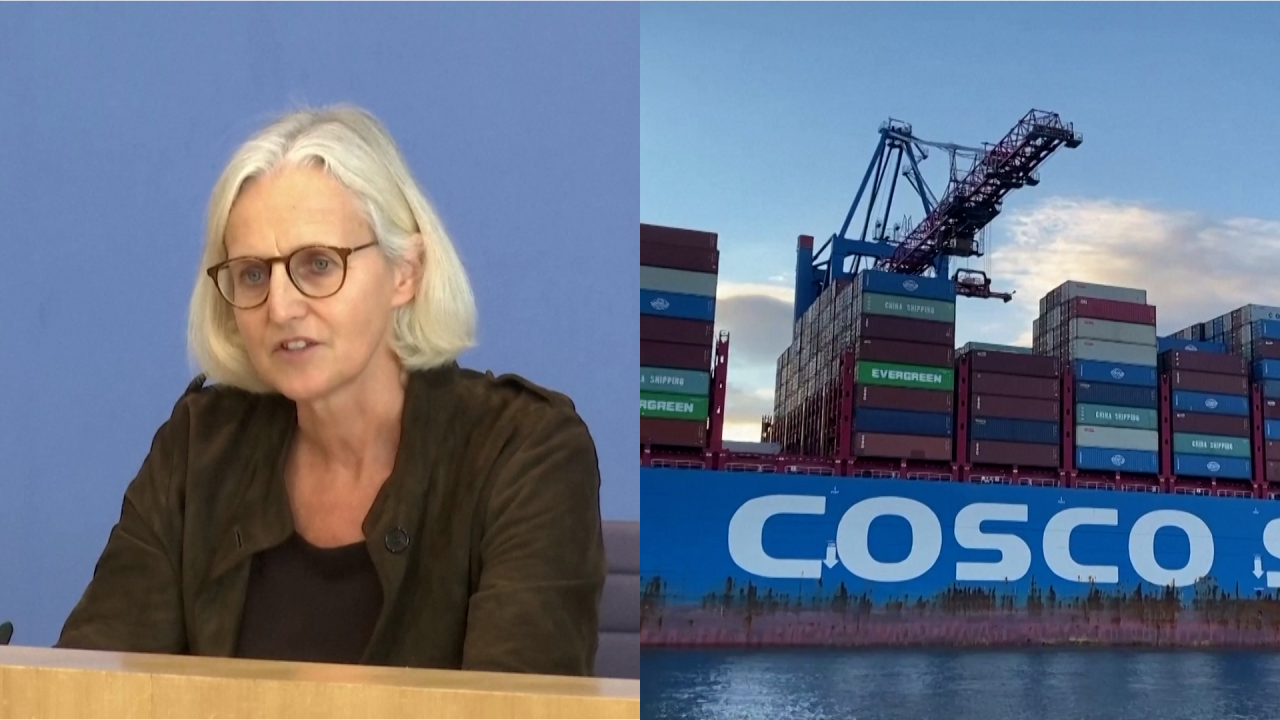More Chinese investment is on the way, he said. “China is on the radar”.
Other headline projects include railways, airports and power plants, with firms in France, the Netherlands and the UK pitching in at various levels. Some more indirect aid involved letting China invest in European infrastructure that links up with belt and road projects.
“Geopolitics [makes investment] no longer so attractive or discourages you from subcontracting for China, and I think the domestic market has changed after Covid to become less friendly to foreigners,” said Alexander Vuving, professor at the Daniel K. Inouye Asia-Pacific Centre for Security Studies in Hawaii.
“This has an effect on foreign investors, on whether to cooperate with Chinese partners.”
German multinationals have offered components and expertise to Chinese belt and road projects in Africa, including a bridge in Mozambique and a solar project in Niger, said Christoph Kannengiesser, chief executive officer of the 500-member German-African Business Association.
German companies still want to work closer with Chinese counterparts on their projects in Africa, Kannengiesser said, as they hope to replicate the relatively fast pace of Chinese developers.
The association’s members have raised the idea at events with Chinese investors, he added, but little has come of it so far.
Finding partners is “not so successful”, he said, because of “hesitation” by numerous companies over approaches and standards for projects.
China doesn’t try to work with Europeans … Their ambitions are to do it by themselves
“Do we cooperate with the Chinese?” he said. “In some respects we do, but we don’t do it on a very relevant number of projects.”
Some of China’s earlier builds generated controversy over questions of environmental protection, job creation and local debt burdens.
German participants would require a certain level of environmental protection for each project, a gender-balanced workforce and proof of an African nation’s “capacity” to repay loans. China, Kannengiesser has found, prefers to go it alone.
“China doesn’t try to work with Europeans,” he said. “Their ambitions are to do it by themselves.”
During headier times, China and France worked together on seven infrastructure projects worth more than US$1.7 billion in Africa, Southeast Asia and Eastern Europe, according to a study posted on the website of French think tank IDDRI.
The city of London said in a May 2022 statement that China and the UK were “in close partnership” to make the belt and road more “green” based on principles established in 2018. A spokesman for the city declined to provide an update on this pledge.
The Netherlands, meanwhile, had allowed Chinese shipping companies to invest in the Port of Rotterdam – the largest facility of its kind in Europe – and Dutch shipping logistics database Portbase reached a cooperation agreement in 2019 with Chinese counterpart Logink.
There’s a strong political element keeping developed countries away, or making them more hesitant
“There’s more attention to getting their house in order,” he said.
European countries are also less enthusiastic now compared to three to four years ago, as political factors have gradually affected participation, Sharif said.
“There’s a strong political element keeping developed countries away or making them more hesitant,” he said.
Taking part in China-led projects would risk “isolation” by fellow developed nations, he said, and in today’s political climate “you don’t know which way the wind will blow”.
The Dutch consulate general in Hong Kong said in a statement to the Post that it does not participate in the Belt and Road Initiative, though Dutch companies “decide for themselves if they want to cooperate with foreign companies, including Chinese ones”.
Companies from the Netherlands are expected to follow Organisation for Economic Cooperation and Development guidelines for “responsible business conduct” when operating abroad, the statement read.
Some Japanese and European companies still contribute technical expertise to China’s projects, said Andy Xie, an independent economist based in Shanghai – though they tend to “keep it quiet”.
Companies or governments that join China’s projects often avoid going public or associating the endeavour with the belt and road, Sharif said.
Nexxiot, a seven-year-old Swiss company that builds devices for railway cars and shipping containers to digitise their movements, is not so circumspect.
Supply chains are increasingly influenced by national interests
The company runs a factory in Suzhou with a Chinese partner to make hundreds of thousands of the tiny boxes each month, company CEO Stefan Kalmund said.
The factory is not technically a belt and road project, but the results complement China’s transport infrastructure throughout the initiative’s web of developing countries.
“New shipping containers are being made in China, so we have a factory there,” Kalmund explained.
“There’s a race going on for who can digitise those assets. Supply chains are increasingly influenced by national interests.”
